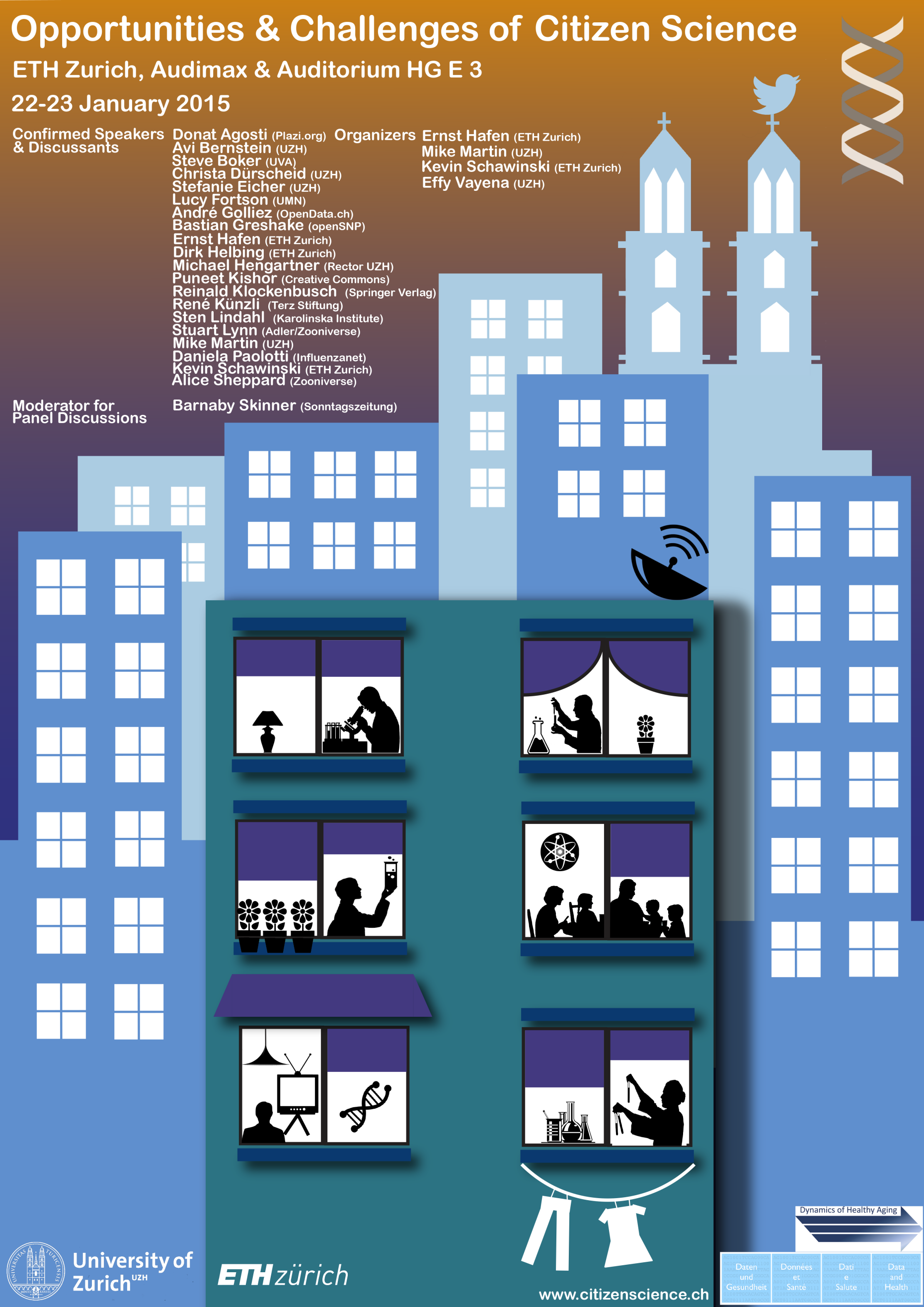Opportunities and Challenges of Citizen Science Workshop (January 22-23 2015)
This workshop aims at providing an overview of the present state of citizen science, an outlook into the potential of citizen science in the future and the discussion of the opportunities and challenges associated with the re-emergence of this discipline for scientists, policy makers and funders.
Up until the end of the 19th century significant scientific discoveries were made by financially independent citizens (e.g., Charles Darwin). During the 20th century scientific research became the realm of universities and other large institutions. As a consequence, citizens developed an increasingly critical attitude towards science and its application (e.g., GMO, evolution, vaccination). Owing to new global communication and social interaction tools and the rapidly increasing digital transformation of data, knowledge is becoming easily accessible and citizen participation is again increasingly possible. Wikipedia as a crowd-sourced encyclopedia has outpaced classical knowledge compendia in a single decade. As a new form of science, direct participation of citizens in scientific projects is starting to appear. In the “Foldit” on-line computer game, citizens with no formal training in protein structure and biochemistry help to analyze the structure of proteins. Similarly, in “Zooniverse.org” millions of citizens classify galaxies, extract oceanic meteorological data from logbooks of ancient ships, or classify tumor samples. These are the very first manifestations of a revolution in scientific research that invites public participation or may even be initiated by the public. Citizen science, thus, offers a huge potential in engaging citizens in scientific research. Not only will this be important for the common good, it will also increase the public’s scientific literacy, which has generally been neglected owning to the retraction of science behind the walls of academia. Opportunities will further increase by citizen researchers contributing and analyzing their own personal health data. The vision of more participatory sciences looks bright and may in fact counteract to some degree the impending threat of the elimination of highly qualified jobs by ever faster and smarter computers and robots. However, citizen science also raises questions on the ethical conduct of such projects and it challenges established academic institutions, funding agencies and scientific publishers. What should be the oversight mechanism for citizen-initiated health research, how can scientists work with citizen-scientists without exploiting them and how should funding agencies determine the potential of citizen science projects?
PreliminaryProgram & Registration

